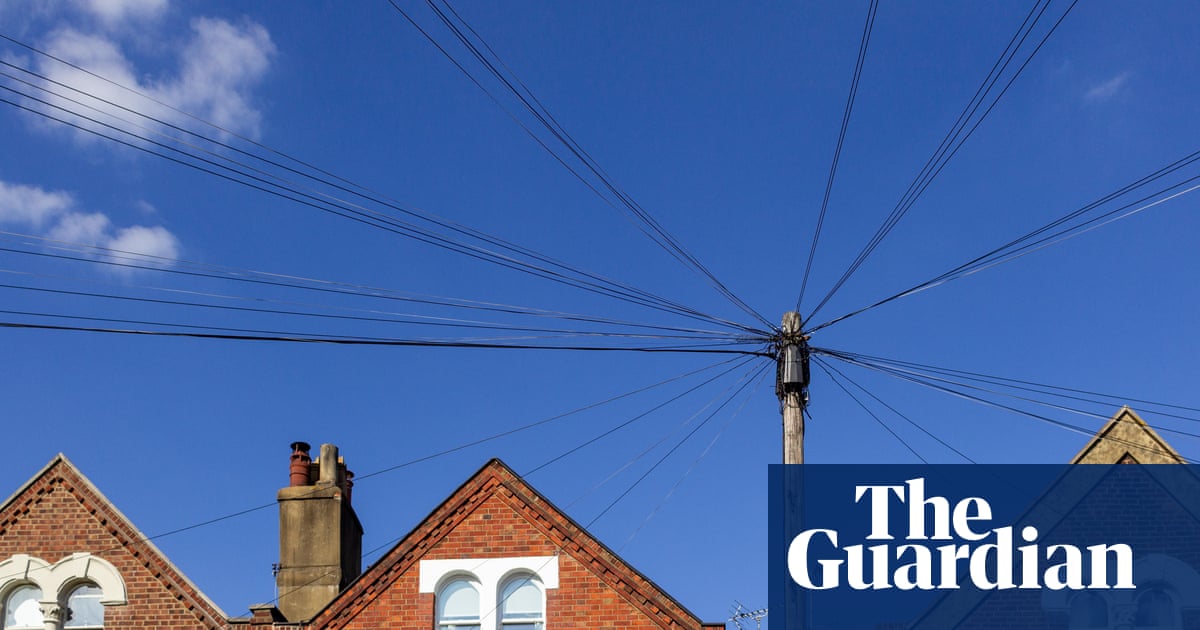
Recently, without warning, enormous telegraph poles were installed outside our house by internet provider Brsk. We already have BT and Virgin cables running underground. The council told me there was nothing it could do because telegraph poles come under “permitted development” rules. Ten days later we received a letter informing us that we would be invited to give feedback about an upcoming installation of poles! One of them is right outside our bedroom window, with wires criss-crossing the view that inspired us to buy our house. Do we not have a right to see the sky?
AC, Rossendale, Lancashire
It will come as a surprise to many that telegraph poles do not need planning permission, and councils and residents are, indeed, powerless to stop them. Brsk, founded in 2020, regards itself as a knight in shining armour riding to our rescue. “British broadband is broken, and we’re on a mission to fix it,” boasts its website. It aims to connect a million households around Manchester and the Midlands by 2025.
Not all residents appreciate its valour. The model village of Bournville was outraged when 100 poles sprouted in its strictly preserved streets. In Halesowen in the West Midlands, former mayor Andy Street praised residents for launching a petition to challenge the company’s installation plans. Hundreds of householders across the Midlands have also signed petitions claiming that they were not consulted over “eyesore” poles.
The rules governing their siting – the Electronic Communications Code (Conditions and Restrictions) Regulations 2003 – do not oblige providers to consult residents, and they were amended in 2013 to remove the requirement for companies to install high-speed broadband cables underground whenever practicable. It therefore comes down to a commercial decision and, since overground cabling is cheaper and quicker, more and more householders may find monsters sprouting on their doorstep to meet the government target of full-fibre broadband for all premises by 2030.
Having said that, the Department for Science, Innovation and Technology (DSIT) has asked operators to do “everything possible” to share existing poles. Brsk tells me that it builds on existing infrastructure wherever possible but admits letters informing residents of the planned work were delayed in error. “In Rossendale, the majority of the network is run using existing poles,” it says, adding that “1,556 existing poles will be used, so we will only need to erect approximately 186 new poles to enable homes and businesses to access full-fibre broadband. We’re proud to be making it one of the best digitally connected areas in the country.”
Sadly, however, views are not a right.
Email [email protected]. Include an address and phone number. Submission and publication are subject to our terms and conditions